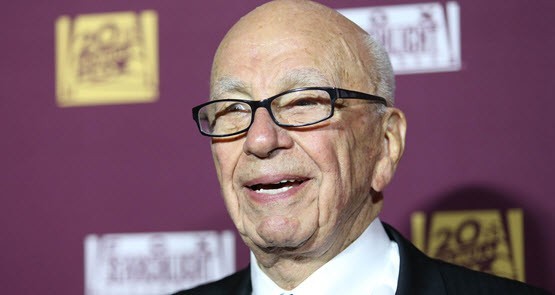
The list of over 1500 large corporate taxpayers has been published by the Australian Taxation Office, for the first time revealing how much tax some of the biggest companies operating in Australia pay.
Under changes in tax transparency legislation passed by the former Labor government, the ATO is required to publish the name, income, taxable income, and tax payable for every public and foreign-owned corporation with income over $100 million.
The resulting list published on data.gov.au for the 2013-14 financial year contains over 1500 companies comprising 985 foreign-owned companies and 554 Australian-owned companies.
One of the most surprising results on the list is that Transfield Services, the controversial company running many of Australia’s offshore immigration detention centres, had no tax payable in Australia in 2013-14, on its revenue of $2.8 billion and taxable income of $16 million. The company’s annual report reveals its net profit for the year was $67 million.
News Australia Holdings, the owner of News’ paper publishing and printing company, had $2.8 billion in revenues but paid no tax in the 2013-2014 financial year. Fairfax Media had $1.6 billion in revenues and paid $16 million on $69.7 million of taxable income.
The results reveal:
- Wesfarmers tops the list at $67.4 billion in revenue, with a taxable income of $3.7 billion, and tax payable at $1 billion;
- Woolworths is second at $49.6 billion in revenue, taxable income of $3.1 billion, and tax payable at $910 million; and
- Telstra pays more tax than Woolworths and Wesfarmers at $1.7 billion, despite revenues of $26 billion. Taxable income was $5.9 billion.
The global tech companies, a favourite of politicians to target for tax minimisation in Australia were also included:
- Apple had revenue of $6.1 billion, taxable income of $247 million, and tax payable of $74.1 million;
- Google’s revenue was $357 million, with a taxable income of $90.8 million, and tax payable of $9.2 million; and
- Microsoft’s revenue was $547 million, with a taxable income of $103.8 million, and tax payable of $31.1 million.
Which company had the most tax payable? BHP Billiton at $3.9 billion, followed by Rio Tinto at $3 billion, and the Commonwealth Bank at $2.8 billion.
Philip Morris, the tobacco giant, had revenue of $3.2 billion, with a taxable income of $746 million, and tax payable of $223 million.
Some of the biggest revenues reported in the year with no tax payable included:
- Chevron with revenue of $3 billion;
- CITEC Resources with revenue of $5 billion;
- Downer EDI with revenue of $6.5 billion;
- Energy Australia with $8.8 billion in revenue;
- ExxonMobil with $9.6 billion in revenue;
- GHP with $11.7 billion in revenue;
- Lend Lease with $7.6 billion in revenue; and
- Qantas with $14.9 billion in revenue.
The Commissioner of Taxation, Chris Jordan, has been at pains to point out that companies not paying tax in one financial year does not mean they are avoiding tax, with more than 20% of ASX-listed companies making an accounting loss in any given year, including Qantas, which reported a $2.84 billion loss in the 2013-2014 financial year:
“No tax paid does not necessarily mean tax avoidance. Any companies with unusual financial or taxation numbers are closely investigated by the ATO. Over half of these 1500 companies have been subject to ATO review or audit over the past three years, with the ATO’s risk and intelligence systems working all the time to ensure that we can all have confidence in the tax system.”
Nevertheless, Jordan says that the ATO will be continuing to challenge the way foreign-owned entities structure their companies to ensure very little tax is paid on profits generated in Australia, and says the publication of the data today will mean companies will now have to consider the reputational issues associated with having tax data available to the public.
Early next year the ATO releases similar information for Australian-owned private companies with revenues of over $200 million, under legislation passed by the government with the support of the Greens earlier this month. Labor was pushing for the threshold to be set at $100 million, and has complained that the deal done with the Greens to pass the legislation in the last sitting week of this year will exclude close to 600 Australian companies that have revenues of over $100 million but below $200 million from reporting.








Now, the next question to be asked: “Which political parties are donated to by these companies and what amounts?”
Can Chris Jordan be also at pains to comment that these bludgers use services paid for by PAYE taxpayers, who have few avenues to lessen or avoid taxation.
So we pay these entities for their services, how about insisting that it be paid into Australian based entities that are taxable?
When you see the prevailing policies of selling off Australian owned assets to foreign companies you get a triple hit to the economy
(1) profits that are taxed here disappear off-shore – the Australian worker(PAYE)then make-up the tax shortfall
(2) money that would circulate in the economy has gone.
(3) Australian companies are way behind the 8-ball competing with companies that have aggressive tax minimisation options.
So while the mid year economic briefing resulted in yet more cuts to health and welfare (and the arts) these big companies do not contribute at all (can’t wait to see the spin that results from this).
Endless promises to make companies accountable never seems to work – why not?
Surely for any who still qondered about equity, this is game, set & match?
Let’s go the bastards, like Steppenwolf going the Pushman.
It could not be simpler, stroke of the pen and all revenues are taxed before deduction which can then argue for rebates, once the money is in OUR kick.